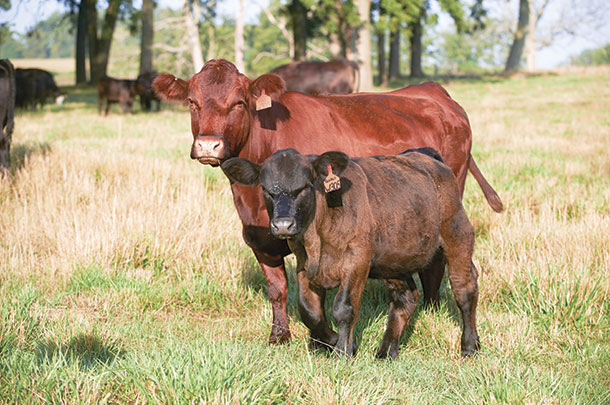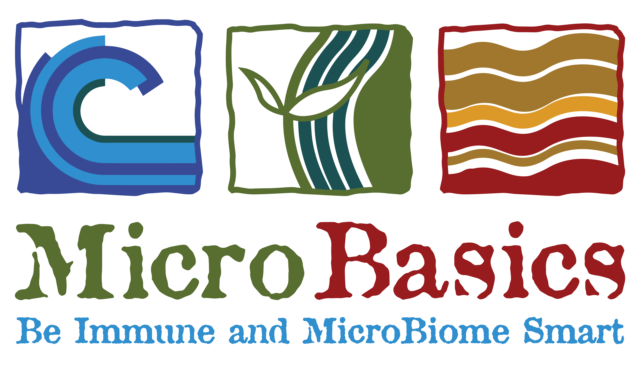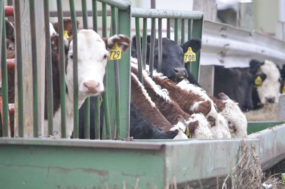What is one thing everyone in the cattle industry works together to achieve? Disease prevention. By preventing disease, we help improve animal health and reduce antibiotic usage and consumer concerns as well as improve labor efficiencies.
Keeping our animals healthy can improve success for all parties involved, from your veterinarian to your ranch hands to an overall healthy operation which puts food on the table for your family and families all over the world.
Looking at respiratory pathogens that put young calves at risk, of primary concern are Mannheimia haemolytica, infectious bovine rhinotracheitis, bovine viral diarrhea virus Types 1 and 2, and bovine syncytial respiratory virus.
Cattlemen make mindful decisions to vaccinate their calves to help ward off sickness and prepare them for weaning, commingling and travel to feedlots. I like to think of vaccine programs as an insurance policy to help protect your animals. Having a preconditioning program in place can help reduce those health risks.
The importance of preconditioning
From cow-calf to feedlot sectors, preconditioning is the most conscientious choice producers can make for the betterment of their animals’ health. Preconditioning programs promote calf growth, enhance immune function and improve immune responses during periods of stress as calves move from their ranch of origin to the stocker or backgrounder operation and then to the feedlot.
Providing vaccines early in life can allow calves to use nutrients for growth and production rather than fighting disease.
A study demonstrated calves enrolled in a third-party-verified preconditioning program were four times less likely to get sick or die in a feedlot setting than calves with an unverified health history.
Preconditioning calves well ahead of stressors, like shipment and commingling, allows time for calves to respond to vaccinations and help avoid potential health risks such as bovine respiratory disease, which accounts for annual beef industry losses of more than $1 billion due to loss of production, increased labor expenses, pharmaceutical costs and death.
In making vaccine protocol decisions, producers should bring their veterinarian into the conversation early to identify primary disease concerns and potential risks for their operation.
Preconditioning programs include not only vaccines but also dewormers and sometimes implants. Work together with your veterinarian to find the program that works best for you and the production goals for your cattle operation.

Benefits to both buyer and seller
Taking the next step from vaccinating to enrolling in a third-party-verified preconditioning program can benefit producers on both the buyer and seller sides. By enrolling in a preconditioning program, producers not only market calves with better health but also reap much-deserved financial rewards, according to Western Video Market sales data.
The value producers can gain through preconditioning calves amounts to as much as $72 more per head if enrolled in a third-party program compared with similarly preconditioned cattle not enrolled in a verified program.
Selling cattle with a history in a verified preconditioning program can provide added profit to sellers and transparency to buyers because the program documents which products were administered to cattle and when.
Producers and veterinarians can work together to help improve overall herd health. Look to your veterinarian as an advocate, not only for the animal but also for you and your operation.
PHOTO: As weaning time approaches, producers should consider a third-party-verified preconditioning program. Photo courtesy of Zoetis.
References omitted but available upon request. Click here to email an editor.
A healthy herd to help feed the world
In college, Laurie Johnson dreamed not of working on the family farm but climbing the corporate ladder. When she met her husband, Brandon, a cattleman, thoughts quickly returned to life on the farm. She never looked back.
“If you would have asked me when I was in college or high school if this is what I’d be doing – no, this isn’t what I’d be doing,” Johnson says. “But would I be doing anything different right now? No.”
The Johnsons run a cow-calf operation in northeastern South Dakota. Laurie takes pride in producing a protein that nurtures families across the world, including her own.
The family is also proud of their herd’s health and the rarity of health challenges experienced because, she says, “We’re up-front, and we’re preventing them. We are pretty particular about our vaccine program, and we work really hard to make sure we don’t have any issues we have to treat.”
When it comes to preconditioning and good husbandry behind the practice, she compares her animals to her children. “I vaccinate my children, so I’m going to vaccinate my animals,” Johnson says. Preconditioning their herd to help prevent disease means more than added profit to Laurie. “To me, it’s the right thing to do. I care for the cattle just like I care for my children, and we want the best for them.”
Already vaccinating their herd, the Johnsons decided to enroll their herd in a results-proven third-party-verified preconditioning program to help mitigate risk and offer transparency for buyers purchasing their cattle, with the ultimate goal of increasing income from the calves they are selling. Enrolling in the program put their calves on the map through the enrollment site and helps differentiate their calves.
Before calves are even run through the sale barn, potential buyers are already aware of the preventive health program her calves receive. “When prices are really great, people aren’t worrying about vaccinations, but as prices change and volatility happens, I think a vaccination program becomes even more important.”
When it comes right down to it for the Johnsons, it’s about good husbandry and producing a healthy herd to help feed the world.
“For me, it’s talking about the care we give these animals. We respect these animals, we care for these animals, and we want to make sure we’re providing the safest, the most wholesome product that we can for [a consumer’s] family,” Johnson says.








